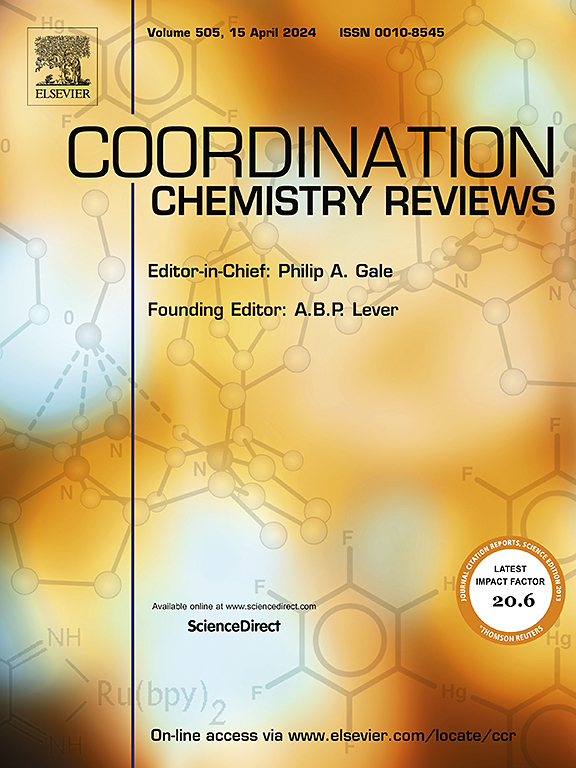Multi-principal element nanoparticles: Synthesis strategies and machine learning prediction
IF 20.3
1区 化学
Q1 CHEMISTRY, INORGANIC & NUCLEAR
引用次数: 0
Abstract
Multi-principal element nanoparticles (MPENs) are an emerging class of nano-materials with widespread applications in electrocatalysis owing to their tunable performances and high chemical stability. The extensive chemical compositional space and high surface area become even more significant at the nanoscale level. MPENs exhibit unique properties, including multi-element synergy, high configuration entropy, and long-range atomic ordering with distinct sublattices of semimetallic or metallic components. These characteristics endow MPENs with outstanding catalytic performance and chemical stability, making them promising candidates for high-entropy alloy (HEA). This review details common synthesis approaches for MPENs. The combination of experimental validation with computational preselection provide an efficient method for optimizing MPENs compositions and enhancing their properties for energy-related applications. In addition, we report on the machine-learning (ML) algorithms and review novel ML models related to atomistic simulations and atomic interactions in thermodynamic studies. We also summarize the ML models for macroscale properties, including lattice structures and phase formations. Instances phase formation through ML-derived order parameters and predictive rules is presented to demonstrate the workflow. In addition, we examine research challenges, including ML-guided opposite materials design and uncertainty quantification.
多主元素纳米粒子:合成策略和机器学习预测
多主元素纳米粒子(MPENs)是一类新兴的纳米材料,由于其可调的性能和高的化学稳定性,在电催化领域得到了广泛的应用。广泛的化学成分空间和高表面积在纳米尺度上变得更加重要。MPENs具有独特的性质,包括多元素协同作用、高构型熵和具有不同半金属或金属成分亚晶格的远程原子有序。这些特性赋予MPENs优异的催化性能和化学稳定性,使其成为高熵合金(HEA)的有希望的候选材料。本文详细介绍了MPENs的常用合成方法。实验验证与计算预选相结合,为优化MPENs组成和提高其性能提供了一种有效的方法,可用于能源相关应用。此外,我们报告了机器学习(ML)算法,并回顾了与热力学研究中的原子模拟和原子相互作用相关的新型ML模型。我们还总结了宏观性质的ML模型,包括晶格结构和相形成。通过ml派生的顺序参数和预测规则,给出了实例阶段的形成,以演示工作流。此外,我们还研究了研究挑战,包括机器学习指导的相反材料设计和不确定性量化。
本文章由计算机程序翻译,如有差异,请以英文原文为准。
求助全文
约1分钟内获得全文
求助全文
来源期刊

Coordination Chemistry Reviews
化学-无机化学与核化学
CiteScore
34.30
自引率
5.30%
发文量
457
审稿时长
54 days
期刊介绍:
Coordination Chemistry Reviews offers rapid publication of review articles on current and significant topics in coordination chemistry, encompassing organometallic, supramolecular, theoretical, and bioinorganic chemistry. It also covers catalysis, materials chemistry, and metal-organic frameworks from a coordination chemistry perspective. Reviews summarize recent developments or discuss specific techniques, welcoming contributions from both established and emerging researchers.
The journal releases special issues on timely subjects, including those featuring contributions from specific regions or conferences. Occasional full-length book articles are also featured. Additionally, special volumes cover annual reviews of main group chemistry, transition metal group chemistry, and organometallic chemistry. These comprehensive reviews are vital resources for those engaged in coordination chemistry, further establishing Coordination Chemistry Reviews as a hub for insightful surveys in inorganic and physical inorganic chemistry.
 求助内容:
求助内容: 应助结果提醒方式:
应助结果提醒方式:


